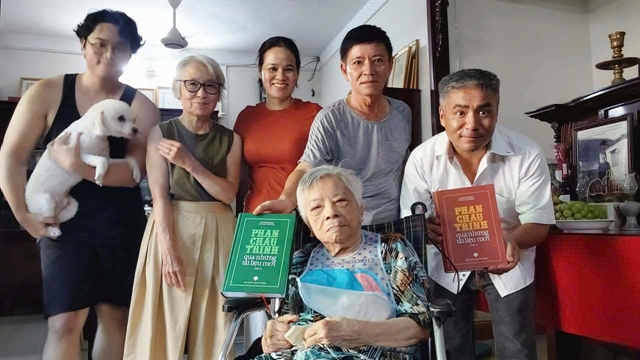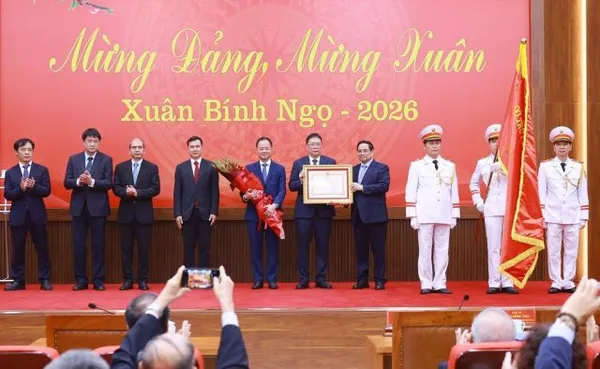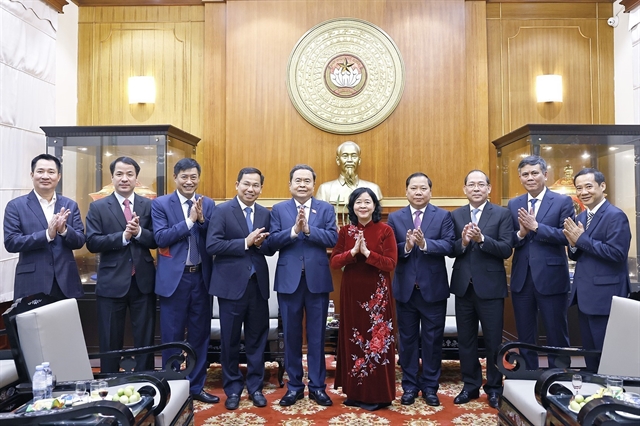 Politics & Law
Politics & Law
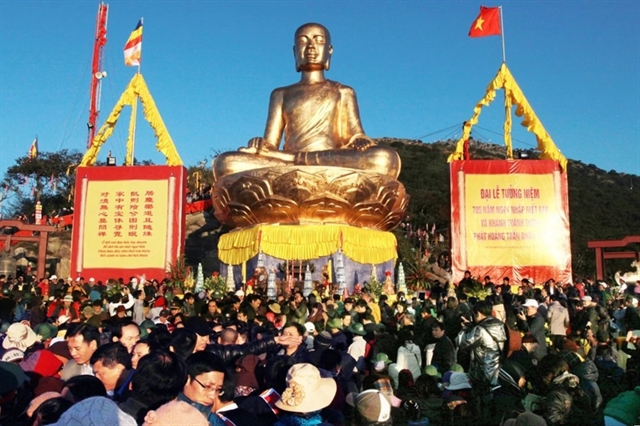
ASEAN Foreign Ministers (FMs) have welcomed the initiative to combine ASEAN Community Vision 2025 with the UN’s 2030 Agenda for Sustainable Development, saying this should be accorded top priority.
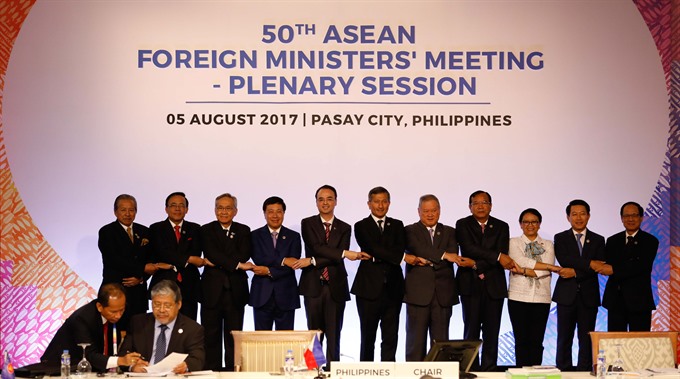 |
| Top diplomats from 27 countries gather in Manila for the 50th ASEAN Foreign Ministers’ Meeting (AMM) and Related Meetings from 02 to 08 August with the theme ’Partnering for Change, Engaging the World’ to promote unity with and among ASEAN member states and its global partners. — EPA/VNA Photo |
MANILA — ASEAN Foreign Ministers (FMs) have welcomed the initiative to combine ASEAN Community Vision 2025 with the UN’s 2030 Agenda for Sustainable Development, saying this should be accorded top priority.
This consensus was reached in talks held at the 50th ASEAN Foreign Ministers’ Meeting (AMM 50) that opened in Manila, the Philippines, on Saturday, which chalked out major development orientations for the ASEAN Community in the coming time.
Reviewing the bloc’s progress since its inception 50 years ago, the FMs agreed that creating favourable conditions for peace and stability, generating collective strength and fostering a culture of dialogue and co-operation for growth were among the greatest achievements of the bloc.
In discussing ways to realise ASEAN Community Vision 2025, they agreed to promote co-operation in economic development as well as efforts to narrow development gaps and increase connectivity, especially by implementing the third phase of the Initiative for ASEAN Integration (IAI), the Master Plan on ASEAN Connectivity (MPAC) and measures to ensure social welfare.
Applauding the initiative to combine ASEAN Community Vision 2025 with the UN’s 2030 Agenda for Sustainable Development, the FMs said it should be a priority.
On ASEAN’s external affairs, the FMs lauded the positive strides made in relations between the group and its partners and the contributions of the partners to the formation of the ASEAN Community. They, therefore, agreed to deepen the partnerships in a more pragmatic fashion.
Solidarity and unity have helped ASEAN overcome various difficulties and challenges, they said, stressing the need to hold on to such values to reap more successes.
They also said ASEAN should highlight its common stance and viewpoints on regional issues in order to contribute to peace, stability and development in the region.
The FMs agreed to promote the formation of a law-based regional structure on the basis of current ASEAN-led forums and mechanisms.
They expressed common concern over traditional and non-traditional challenges facing regional security, including increased terrorism and piracy, and the situation in the Korean Peninsula and the East Sea.
On the East Sea issue, there was consensus on the need to maintain peace, stability, navigation and aviation security and safety.
Việt Nam’s Deputy Prime Minister cum Minister of Foreign Affairs Phạm Bình Minh, head of the Vietnamese delegation to the event, highlighted the significance of the 50th anniversary of ASEAN and the group’s achievements.
He also listed stagnant intra-bloc trade, negative impacts of the anti-globalisation movement and slow application of outcomes of the fourth industrial revolution as challenges facing the group.
Given these challenges, Minh suggested the adoption of policies and measures that facilitate the growth of micro, small and medium-sized enterprises, saying these would make the ASEAN Community more efficient.
He also stressed the need to enhance education and training, establish a network of agencies and institutes for scientific and technological research, and accelerate the Initiative for ASEAN Integration, particularly in education and training.
Minh also reiterated Việt Nam’s consistent stance on the significance of peace, stability, navigation and aviation security and safety in the East Sea for regional peace and stability.
Disputes should be resolved peacefully in accordance with international law, including the 1982 UN Convention on the Law of the Sea (UNCLOS), and respect for legal and diplomatic processes, he said, stressing the need for concerned parties to back efforts to build trust and prevent conflict.
He noted that developing a suitable and satisfactory approach to the East Sea issue was ASEAN’s practical contribution to long-term peace and stability in the region, proving its competence, efficiency and central role in regional and international matters.
Talking about non-traditional security challenges, Minh highlighted adverse impacts of terrorism and piracy on security and social order in the region.
Việt Nam will work together with other ASEAN members to strengthen comprehensive co-operation within regional mechanisms and frameworks in order to cope with the problems, he said.
Meeting with dialogue partners
Meetings between the ASEAN foreign ministers and their counterparts from the bloc’s dialogue partners of Canada, the Republic of Korea and New Zealand took place in Manila, the Philippines, yesterday, as part of the 50th ASEAN Foreign Ministers Meeting.
At the ASEAN-Canada meeting, Canadian Foreign Minister Chrystia Freeland pledged her country’s support for driving back extremism in the region.
At the meeting with their ASEAN counterparts, the foreign ministers from the Republic of Korea (RoK) and New Zealand, affirmed the role of the bloc in the region and expressed their desire to step up ties.
RoK Foreign Minister Kang Kyung-Wha asserted that the RoK government sees ASEAN as a key partner in its strategy to expand external relations. New Zealand’s Foreign Minister Gerry Brownlee said with its 50-year history, ASEAN’s political and economic role has been affirmed.
Additional ASEAN+1 meetings - with China, Japan, India, the US, Russia and the European Union - are planned.
Concerns about DPRK’s weapom programme
The foreign ministers of the 10 ASEAN member states on Saturday criticised the missile and nuclear weapons programme of the Democratic People’s Republic of Korea (DPRK).
In a statement issued at their meeting in the Philippines, the foreign ministers expressed concern about increasing tensions in the region after the DPRK’s two ballistic missile tests last month.
They also urged the DRPK, a member of the ASEAN Regional Forum (ARF), to strictly abide by relevant resolutions of the UN Security Council and under take constructive, practical actions to contribute to peace, security and stability in the Asian-Pacific region.
The DPRK has affirmed its launch of a Hwasong-14 ballistic missile on July 28, the second consecutive launch of its intercontinental missile.
On August 7, foreign ministers of ASEAN and 17 dialogue partners are scheduled to hold an important ARF multilateral security dialogue to discuss issues of concern in the region. — VNS

_med.jpg)
